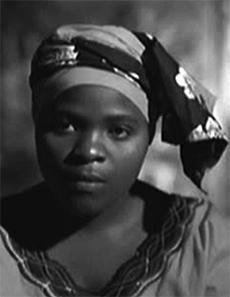Photo from the collection of: The USC Shoah Foundation — The Institute for Visual History and Education’s Visual History Archive®
Julienne Umugwaneza
Born: Unknown, , Rwanda
Julienne was a teenager, one of nine kids in a happy Tutsi family. In 1994, a genocide against the Tutsi began. Hutu gangs roamed the countryside, killing Tutsi and Hutu who helped them. When her family found out that a raid was planned, they hid in their fields overnight. In the morning they went for help at a local government office. Government authorities wouldn’t help them. Thousands of other Tutsi families were also on the road looking for safety.
Julienne’s family was ordered to a large school. They were crowded into classrooms with thousands of other Tutsi. There was no food. When they complained to authorities, the water supply was also cut off . People grew sick. Some died. The rooms were so crowded some people slept in the schoolyard.
In the middle of the night on April 21, gangs and soldiers shot and tossed grenades into the schoolyard to force the Tutsi there to retreat to the classrooms. Then the gangs attacked with guns, machetes, clubs and mallets. They left no one they found—woman, man or child—alive.
Julienne’s older sister was shot and killed. Julienne found her mother with another sister. She knew they would all be killed and couldn’t bear the idea of seeing her mother and sister sffer. So Julienne ran to another room. When the gangs threw open the door to that classroom, she was caught between the door and the wall. She was saved because no one saw her. When the killing finally stopped, Julienne ed the school, wandering and hiding until finally a family sheltered her. Eventually, the genocide was over. Julienne’s parents, four siblings and 500 other members of her extended family had been killed.
Today she feels hope and also some fear. She can’t forget, but she believes survivors shouldn’t bury themselves in sorrow. They should try to live and move forward, and get involved in activities that make their lives better.
Click here for background information on the genocide against the Tutsi in Rwanda.


